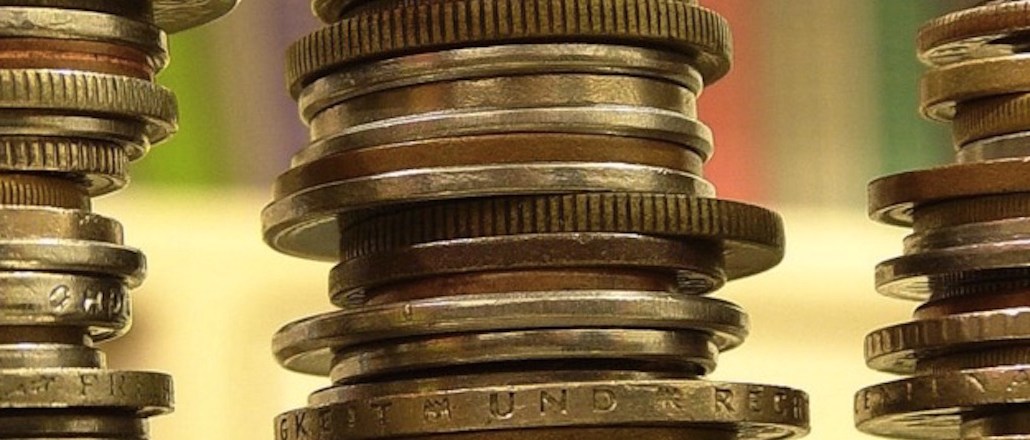Last chance to save on Digiday Publishing Summit passes is February 9

Publishers have flirted with micropayments as a revenue stream for years, mostly unsuccessfully. Now, with the continued rise of ad blocking, new hope again is pinned on pay-per-article schemes for ad-blocking readers. Fat chance.
German publisher Gruner + Jahr, which publishes 285 magazines and newspapers across 22 countries, serves messages to ad-blocking visitors to its site Geo.de, requiring disabling the ad-block software or paying 99 cents ($1.12) for a day’s access, or €4,99 ($5.70) for a week. It’s also extended this to lifestyle website Schöner Wohnen, which charges 50 cents ($0.60) for a day pass and €2 ($2.26) for a week’s pass. Condé Nast-owned title GQ is also preventing people using ad blockers from accessing its site with a pop-up asking them to disable their ad blockers or pay 50 cents to read an article. Newsweek is also among the interested parties. The magazine publisher is pursuing micropayments as an option for ad blocker users.
“If a user wants an ad-free story they can have one, but there’s a financial exchange,” said Jeremy Makin, vp of sales across Europe for Newsweek parent IBT Media. “They could of course also become a subscriber and we can give them a totally ad-free environment, but if they want to buy a one-off story they can.”
Vendors like Sourcepoint are also expected to develop a micropayment option for publishers.
But despite this flurry of interest, a large contingent of U.K. publishers are skeptical of micropayments as a savior for ad blocking. Several publishers dismissed micropayments as a way to stunt the growth of ad blocking.
The problems with micropayments are still there, even with ad blocking: Micropayments are a total hassle for people.
“The fact is, consumers dislike micropayments,” said Tom Standage, deputy editor of The Economist, referring to Clay Shirky’s essay in 2000 on the subject. “They dislike the cognitive load of having to decide whether to click and pay, and they dislike being nickel-and-dimed. Whenever people start to talk about micropayments again (as they do every few years) I tell people to go and read this essay, and ask whether the new thing being talked about — iTunes, Blendle, Bitcoin — addresses the fundamental problem.”
The Economist has been on Blendle for a while, which lets people get refunds if they close the tab within 15 seconds, and also offer refunds to readers when they’ve read, but haven’t liked an article. But Standage is skeptical of Blendle’s approach despite this clever tweak.
“It’s very clever, but I doubt it will really change the game. I would love to be proved wrong. But I do not expect to be.”
Chris Duncan, chief customer officer of News UK, which owns The Sun and The Times, said micropayments aren’t the right antidote to ad blockers.
“For micropayments to work it has to be on a platform that can take small payments efficiently based on you already having an account, as per iTunes or Blendle. Asking people to set up a brand new micropayment account in order to get an ad free version of an article will have a high bounce rate from both options, I suspect,” he said.
Where micropayments have worked, like in smaller markets like Slovakia, it’s because micropayment vendors have managed to get buy-in from all publishers, according to Martin Ashplant, digital director at The Metro, who led City AM’s ad blocker ban while he still worked at the London paper last year.
“If publishers can tie in with Apple or Google’s payment systems, so it’s completely frictionless then it’s viable, but if it’s a matter of setting up your own micropayment management system, I can’t see that working,” he added.
More in Media

Brands invest in creators for reach as celebs fill the Big Game spots
The Super Bowl is no longer just about day-of posts or prime-time commercials, but the expanding creator ecosystem surrounding it.

WTF is the IAB’s AI Accountability for Publishers Act (and what happens next)?
The IAB introduced a draft bill to make AI companies pay for scraping publishers’ content. Here’s how it’ll differ from copyright law, and what comes next.

Media Briefing: A solid Q4 gives publishers breathing room as they build revenue beyond search
Q4 gave publishers a win — but as ad dollars return, AI-driven discovery shifts mean growth in 2026 will hinge on relevance, not reach.





